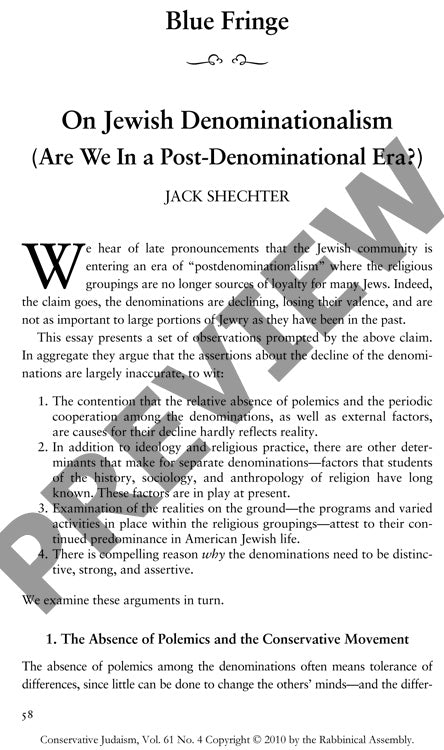On Jewish Denominationalism
Couldn't load pickup availability
American Judaism's denominational structures remain remarkably resilient despite widespread claims of their imminent decline. While some observers herald a "post-denominational era," careful analysis of contemporary Jewish religious movements reveals a more complex reality characterized by evolving rather than diminishing denominational dynamics. Through observational analysis of denominational activities, institutional relationships, and educational programming across Orthodox, Conservative, and Reform movements, four key patterns emerge: First, reduced inter-denominational polemics reflect growing tolerance rather than organizational weakness, with Orthodox and Reform movements maintaining distinct identities. Second, practical factors like geography, economics, and social networks continue driving denominational affiliation alongside religious considerations. Third, denominational frameworks still dominate Jewish education, youth programming, and adult learning, with transdenominational initiatives representing only minor portions of overall Jewish engagement. Fourth, denominational particularity enriches broader Jewish communal welfare through distinct ideological emphases and practices. While structural challenges within the Conservative movement, particularly regarding seminary leadership roles, have fueled post-denominational rhetoric, the evidence demonstrates that denominational strength remains vital for American Jewish life. These distinct religious groupings provide bounded frameworks that enhance the larger Jewish community through their specific contributions and perspectives.

More Information
-
Physical Description
-
Publication Information
Published 2010
ISBN
-
Publication Credits
Jack Shechter

